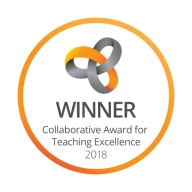The Enhancing Fieldwork Learning team have been researching and sharing innovative ways to enhance fieldwork teaching and learning through the use of mobile technologies. The arrival of more powerful and affordable smartphones and tablets has meant that most students starting in Higher Education now have access to mobile technologies which could be used to enhance their learning experience.
Ultimately, the EFL project has been promoting the integration of active learning into fieldwork and the technology simply supports educators and students to create novel educational activities. One such opportunity is the collection and sharing of georeferenced data in the field and many mobile apps are now available to support this approach. This leads to the concept of ‘citizen science’ where students are able to engage with others to crowdsource/share their data to build a larger dataset thereby opening up many research and knowledge generation possibilities.

There are three main motivations for integrating Citizen Science into Higher Education curricula; to provide skills training, to integrate active learning approaches and to increase students’ engagement with their learning:
- Skills training –enhancing graduate employability
- Scientific skills: e.g. Sampling strategy & techniques, digital mapping, ID, project design, data management, research skills
- ‘Soft skills’: e.g. digital literacies, global citizenship, team working, professional online behaviour, (social) media skills, creativity
- Active Learning
- For large class sizes
- For MOOCs (Massive Open Online Courses)
- Enquiry-based learning
- Research-led teaching
- Students’ engagement in their learning (fun!)
There are many ways in which a citizen science approach can be used to support active learning in Higher Education and the EFL team are currently researching the benefits of this approach and we are looking for case study examples. We will report on our findings here soon. Please see this slideshare presentation for further details.
We would love to hear from you if you are currently involved in a citizen science project and wish to engage with HE or if you are a fieldwork leader and you are considering integrating citizen science into your teaching. Also, please get in touch (by email to a.l.mauchline@reading.ac.uk) if you are already doing this as we would love to learn from your experiences.
Active learning = Any instructional method that engages students in the learning process – doing meaningful learning activities & thinking/questioning what they are doing
Citizen Science = the involvement of volunteers (i.e. people who are not involved as part of their employment) in science (Pocock et al., 2014)
Pocock, M.J.O., Chapman, D.S., Sheppard, L.J. & Roy, H.E. (2014). Choosing and Using Citizen Science: a guide to when and how to use citizen science to monitor biodiversity and the environment. Centre for Ecology & Hydrology.

